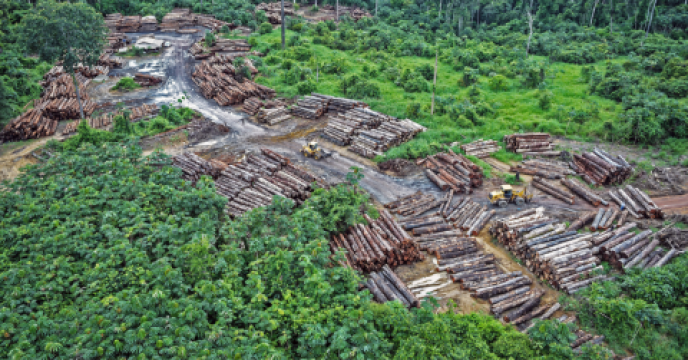“To know Creation is to know the Creator.” –St. Columban
For more than 30 years, Columban missionaries have been at the forefront of protecting the environment from destructive practices and addressing the urgency of climate change. Our mission experience of living with the natural world and with communities that have been marginalized and exploited impels us to seek ways to restore right relationships with all of Creation.
We advocate for bold action to address Climate Change.
In particular, human-induced climate change is the most serious and pressing ecological challenge facing the world today. The reality of climate change compels us to both personal and structural changes.
Climate change, largely driven by our reliance on fossil fuels, has led to extreme weather events, rising sea levels, severe droughts, a loss of biodiversity, food insecurity, and higher rates of migration which affect the poor and vulnerable in nations across the world.
Columban Missionaries around the globe stand in solidarity with communities impacted by climate change. In Burma and Peru, missionaries watch as glaciers, a main water and irrigation source, continue to disappear. In the Philippines and Fiji, extreme weather events and rising sea levels threaten coastal communities where agriculture and fishing are a main source of economic stability. Severe droughts cause food and water shortages in Pakistan and the U.S.
We advocate for sustainable development and agricultural systems.
Across the world, in countries that are rich in oil, gas and minerals, extractive industries have inflicted lasting damage to poor and indigenous communities and to Creation. Based on their experience in communities negatively affected by mining and other extractive projects, Columbans challenge this model of development based on the intensive exploitation of natural resources.
Large-scale agribusiness has also been detrimental to the land and people. Genetically Modified Organisms (GMOs) threaten the integrity of creation and the life God made good, and they have extremely damaging effects on the livelihoods of small-scale farmers and economies throughout the world.
We advocate for the right to water.
According to the Catholic Church, the right to water, as all human rights, finds its basis in human dignity and not in any kind of assessment that considers water merely as an economic good. Water, the basis for all human life, is a sacred source of life we must protect. Without adequate access to clean water, the health, nutrition, and sanitation of poor communities, and especially women and children, suffer. Without water, life is threatened.
Environmental Justice Resources:
The United States is responsible for a portion of the deforestation happening in the Amazon, including the recent fires that made headlines. Many US manufacturers and other companies source materials from the Amazon region.
The military industrial complex and the fossil fuel industries are connected to one another. In relation to the ongoing destruction of the Amazon rainforest there is one company, BlackRock Inc., which encompasses all the concerns of Amazon peoples.

Illegal logging on Pirititi indigenous amazon lands with a repository of round logs on May 8, 2018 (Felipe Werneck/Ibama via flickr via AP)
We are challenged in this moment to ensure our global economic systems treat the Amazon not as a commodity for our use but as an integral region that supports life on Earth. This is not an easy task, but our first step must be to recognise our deep connection to the Amazon, no matter where we live.
It is hoped that the synod may go some way towards achieving what science to date has not been able to; igniting a spark to overcome the political inertia that has resisted addressing this massive change. More and more, a prevailing belief is that a moral force is needed.
“There is an urgent need to develop policies so that, in the next few years, the emission of carbon dioxide and other highly polluting gases can be drastically reduced” (LS, 26).
Our faith calls us to stand in solidarity with those who are vulnerable and persecuted. One way we can do that for the courageous people who defend our common home, especially indigenous communities, is by praying a "Novena for Earth Defenders."
Copyright © 2025 Columban Center for Advocacy and Outreach, Washington, D.C.